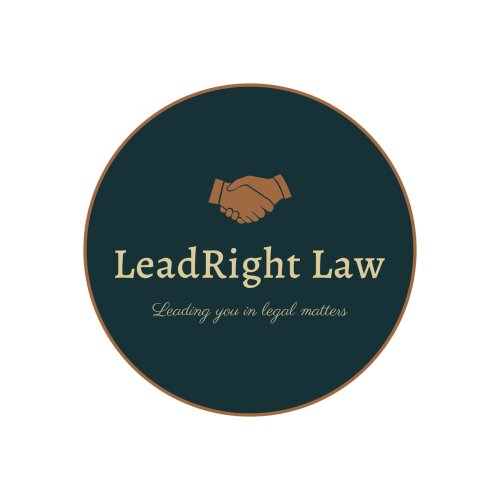Best Juvenile Law Lawyers in Canada
Share your needs with us, get contacted by law firms.
Free. Takes 2 min.
Or refine your search by selecting a city:
List of the best lawyers in Canada
About Juvenile Law in Canada
Juvenile Law in Canada, governed primarily by the federal Youth Criminal Justice Act (YCJA), focuses on legal issues involving minors typically under the age of 18. The Act aims to protect the rights of youth, promote rehabilitation, and reintegration into society, emphasizing restorative justice principles over punitive measures. Specific provincial regulations may also apply, addressing issues like child welfare, family law, and education.
Why You May Need a Lawyer
Several situations may require legal assistance in the realm of Juvenile Law:
- If a minor is charged with a criminal offense, legal advice is crucial to navigate the complexities of the YCJA.
- Parents may need legal guidance in child custody or protection cases.
- Youth involved in school disputes or disciplinary actions might benefit from legal counsel.
- Minors experiencing issues with immigration, employment, or human rights can seek legal advice.
Local Laws Overview
The Youth Criminal Justice Act is the cornerstone of Juvenile Law in Canada, applicable across the provinces. It outlines the legal rights of youth, the process of dealing with young offenders, and focuses on fair and proportionate measures. Additionally, provinces have distinct child protection laws and enforcement mechanisms, such as the Child and Family Services Act in Ontario and the Child, Youth, and Family Enhancement Act in Alberta. Understanding these distinctions is crucial for effective legal navigation in juvenile matters.
Frequently Asked Questions
What is the age range for Juvenile Law in Canada?
Juvenile Law typically applies to individuals aged 12 to 17. Those under 12 are not held criminally responsible, and 18-year-olds fall under adult law.
How does the YCJA differ from adult criminal laws?
The YCJA focuses on rehabilitation rather than punishment, offering alternative measures like community service and counseling instead of incarceration.
What rights do minors have when arrested?
Youths have the right to speak to a lawyer, have a guardian present, and understand the charges against them in a language they comprehend.
Can a juvenile record affect future opportunities?
Yes, but juvenile records can be sealed or even destroyed after certain conditions are met, reducing long-term impacts on education and employment.
What is an extrajudicial measure?
These are non-court measures like warnings or referrals to community programs for less serious offenses, aiming for rehabilitation without formal charges.
Are parents liable for their child’s criminal behavior?
Parents are generally not held criminally responsible, but they may be involved in restitution or community service arrangements.
How are juvenile detention centers different from adult prisons?
Juvenile centers focus on rehabilitation with access to education and counseling, unlike the adult prison system’s punitive approach.
What happens if a youth turns 18 during legal proceedings?
The individual typically remains within the juvenile system, but certain serious cases might transition to adult courts.
Can youths be tried as adults in Canada?
In rare, serious cases, and after thorough legal consideration, a judge may decide to try a youth as an adult.
What support is available for families of youth offenders?
Various support programs and counselling services are available to assist families, often coordinated with government and local community agencies.
Additional Resources
For those seeking more information on Juvenile Law, consider reaching out to the following resources:
- Justice for Children and Youth - A legal aid clinic providing advocacy and legal services for youth.
- The Office of the Ombudsman in each province can offer guidance and assistance.
- Provincial child welfare services, available through government websites, offer support for families and youth.
Next Steps
If you find yourself needing legal assistance in Juvenile Law, it's essential to consult with a legal professional specializing in juvenile cases. Legal aid services are available for those who qualify financially. Initial consultations with a lawyer can provide critical insights into your case, potential outcomes, and tailored advice for your situation. Make sure to prepare any necessary documentation and questions before your meeting to make the most of your time and resources.
Lawzana helps you find the best lawyers and law firms in Canada through a curated and pre-screened list of qualified legal professionals. Our platform offers rankings and detailed profiles of attorneys and law firms, allowing you to compare based on practice areas, including Juvenile Law, experience, and client feedback.
Each profile includes a description of the firm's areas of practice, client reviews, team members and partners, year of establishment, spoken languages, office locations, contact information, social media presence, and any published articles or resources. Most firms on our platform speak English and are experienced in both local and international legal matters.
Get a quote from top-rated law firms in Canada — quickly, securely, and without unnecessary hassle.
Disclaimer:
The information provided on this page is for general informational purposes only and does not constitute legal advice. While we strive to ensure the accuracy and relevance of the content, legal information may change over time, and interpretations of the law can vary. You should always consult with a qualified legal professional for advice specific to your situation.
We disclaim all liability for actions taken or not taken based on the content of this page. If you believe any information is incorrect or outdated, please contact us, and we will review and update it where appropriate.
Browse juvenile law law firms by city in Canada
Refine your search by selecting a city.
















